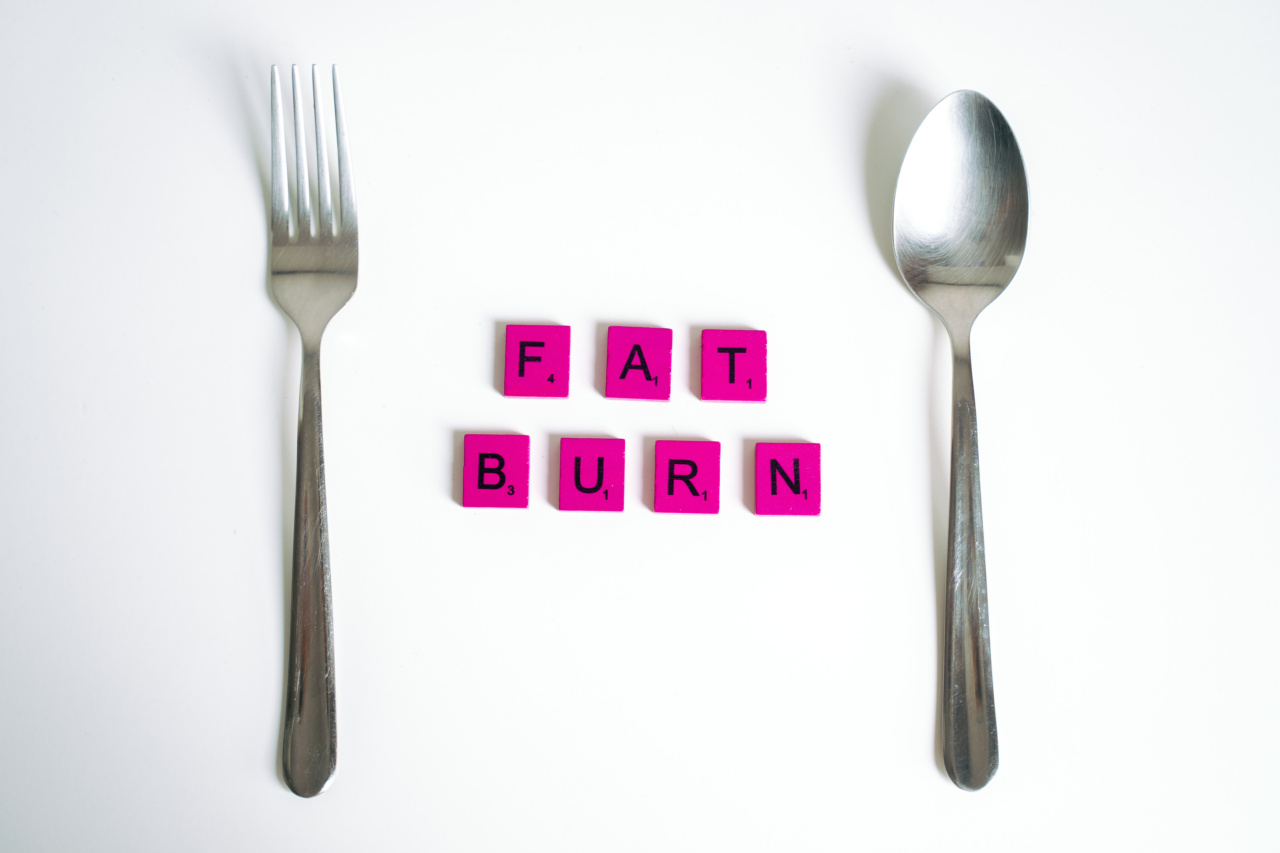When it comes to losing weight, one of the most crucial factors is the speed of your metabolism. Your metabolism is responsible for the conversion of food into energy and determines how efficiently your body burns calories.
Some people naturally have a faster metabolism, while others have a slower one. However, there are several strategies you can implement to increase your metabolism and ultimately burn fat faster. In this article, we will explore these strategies in detail and provide you with the necessary tools to boost your metabolism.
1. Build Lean Muscle Mass
One of the most effective ways to increase your metabolism is to build lean muscle mass. Unlike fat, muscle is metabolically active, which means it requires more energy (calories) to sustain.
Therefore, the more muscle you have, the more calories you will burn even when at rest. Engaging in resistance training exercises, such as weightlifting or bodyweight exercises, can help you build muscle and elevate your metabolism.
2. Stay Active Throughout the Day
Sedentary behavior can significantly reduce your metabolic rate. Sitting for prolonged periods can cause your metabolism to slow down, leading to weight gain. Incorporating more movement and physical activity throughout your day can help counteract this.
Simple changes like taking regular breaks to stretch, walking or cycling to work, or even doing household chores can make a difference. Aim to move and stay active as much as possible.
3. Consume Protein-Rich Foods
Protein-rich foods have a high thermic effect, meaning they require more energy to digest and metabolize. This energy expenditure during digestion can boost your metabolism.
Include sources of lean protein, such as chicken, fish, tofu, legumes, and low-fat dairy products, in your diet. These foods not only increase your metabolism but also help you feel full for longer, reducing the chances of overeating.
4. Stay Hydrated
Water plays a crucial role in many bodily functions, including metabolism. Studies have shown that drinking water can temporarily boost metabolism by increasing the number of calories burned.
Additionally, staying adequately hydrated can prevent dehydration, which can cause fatigue and sluggishness. Aim to drink at least 8 glasses of water per day and more if you engage in physical activity or live in a hot climate.
5. Get Sufficient Sleep
The quality and quantity of your sleep can have a significant impact on your metabolism. Lack of sleep can disrupt your hormone balance, leading to a slower metabolism and increased appetite.
Aim for 7-8 hours of uninterrupted sleep every night to support optimal metabolic function.
6. Avoid Crash Diets
Although crash or restrictive diets may promise quick weight loss, they can be detrimental to your metabolism in the long run. Severely restricting your calorie intake can slow down metabolism as your body enters a conservation mode to preserve energy.
Instead, opt for a balanced and sustainable approach to weight loss that includes nourishing your body with a variety of nutrient-dense foods.
7. Include High-Intensity Interval Training (HIIT)
High-Intensity Interval Training (HIIT) is a workout method that alternates between intense bursts of exercise and short recovery periods.
HIIT workouts have been shown to increase metabolism even after the workout is completed, leading to continued calorie burning. Incorporate HIIT workouts into your fitness routine, whether it’s through cardio exercises like running or cycling, or bodyweight exercises like burpees and mountain climbers.
8. Enjoy Green Tea or Coffee
Green tea and coffee are known to contain caffeine and certain compounds that can help boost metabolism. Caffeine has been shown to temporarily increase metabolic rate and enhance fat oxidation.
However, it is essential to enjoy these beverages in moderation and be mindful of added sugars or creamers that can negate their metabolic benefits.
9. Manage Stress Levels
Chronic stress can have a negative impact on your metabolism. When you’re stressed, your body releases cortisol, a hormone that can slow down metabolism and promote fat storage.
Find effective stress management techniques that work for you, such as yoga, meditation, deep breathing exercises, or engaging in hobbies you enjoy.
10. Eat Regularly
Skipping meals or severely restricting your calorie intake can signal to your body that it is entering a period of famine. Consequently, your metabolism slows down to conserve energy.
To keep your metabolism active, it is important to eat regular meals and snacks that provide a balance of macronutrients. Aim for three meals and two snacks per day, focusing on whole foods that provide sustained energy.
Implementing these strategies to boost your metabolism can significantly impact your weight loss goals. Remember, everyone’s metabolism is unique, and results may vary.
However, maintaining a healthy lifestyle that includes regular exercise, a balanced diet, adequate sleep, and stress management can optimize your metabolism and enhance fat burning.




























